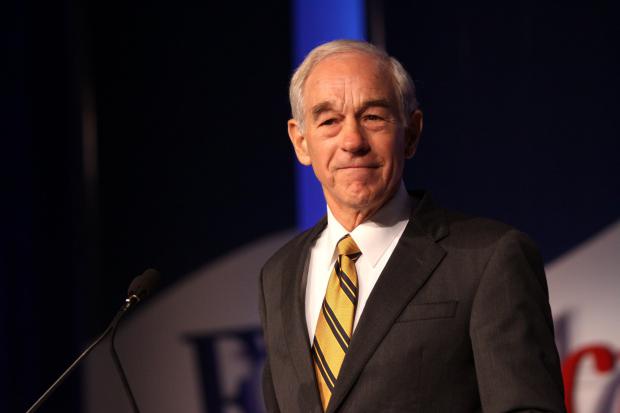
Breaking News
 Washington's Dept of Health just quietly issued a Covid vaccine standing order...
Washington's Dept of Health just quietly issued a Covid vaccine standing order...
 The day after his fiery Senate hearing, RFK Jr. revealed the exact reasons for firing CDC Director
The day after his fiery Senate hearing, RFK Jr. revealed the exact reasons for firing CDC Director
 47 shares a video about vaccines to Truth. Caption: "They're all poison."
47 shares a video about vaccines to Truth. Caption: "They're all poison."
 Stephen Goodson (1948-2018) served as director of the South African Reserve Bank from 2003 to 2012
Stephen Goodson (1948-2018) served as director of the South African Reserve Bank from 2003 to 2012
Top Tech News
 Neuroscientists just found a hidden protein switch in your brain that reverses aging and memory loss
Neuroscientists just found a hidden protein switch in your brain that reverses aging and memory loss
 NVIDIA just announced the T5000 robot brain microprocessor that can power TERMINATORS
NVIDIA just announced the T5000 robot brain microprocessor that can power TERMINATORS
 Two-story family home was 3D-printed in just 18 hours
Two-story family home was 3D-printed in just 18 hours
 This Hypersonic Space Plane Will Fly From London to N.Y.C. in an Hour
This Hypersonic Space Plane Will Fly From London to N.Y.C. in an Hour
 Magnetic Fields Reshape the Movement of Sound Waves in a Stunning Discovery
Magnetic Fields Reshape the Movement of Sound Waves in a Stunning Discovery
 There are studies that have shown that there is a peptide that can completely regenerate nerves
There are studies that have shown that there is a peptide that can completely regenerate nerves
 Swedish startup unveils Starlink alternative - that Musk can't switch off
Swedish startup unveils Starlink alternative - that Musk can't switch off
 Video Games At 30,000 Feet? Starlink's Airline Rollout Is Making It Reality
Video Games At 30,000 Feet? Starlink's Airline Rollout Is Making It Reality
 Grok 4 Vending Machine Win, Stealth Grok 4 coding Leading to Possible AGI with Grok 5
Grok 4 Vending Machine Win, Stealth Grok 4 coding Leading to Possible AGI with Grok 5
Answering Ron Paul's 'What If…' Speech

On February 12, 2009, Dr. Ron Paul (R-TX) delivered one of his most striking speeches on the floor of the U.S. House of Representatives. Since referred to as the "What If…" speech, Paul's remarks offer a precise distillation of the libertarian critique of U.S. foreign policy. At a time when military interventionism was still very much in vogue among Republican voters, Paul was willing to call a spade a spade and dismantle the faulty logic driving America's misguided overseas adventures.
Paul's oratory is persuasive because he posits a series of hypotheticals that aren't really hypotheticals. The scenarios Paul describes underscore the political, intellectual, and moral bankruptcy of the American ruling class. Case in point, Paul begins his speech by posing the following questions:
"What if it's true that the Federal Reserve is the primary cause of the boom-bust cycle and the massive inflation we now face?
What if the government's attempt to solve the financial crisis is only making matters worse?
What if foreign interventionism is a primary cause of the hatred directed at America?
What if the War on Terror is a war that can never be won, a war that only perpetuates more terror and instability?
What if the real threat to our liberties comes not from foreign enemies, but from our own government?"
According to Paul, the call is calling from inside the house. The Federal Reserve, with its ability to print money at will, devalues the American dollar while financing the warfare state and enabling its ability to fund deadly conflicts abroad. At the same time, the Fed diminishes the purchasing power of the American consumer. This inevitably leads to voter demands that government officials step in and solve the very crises their policies led to. But financial stimulus—and the concomitant printing of more money—further erodes the value of the U.S. dollar. He elaborates on this point:
"What if the income tax and the welfare state are the true enemies of economic freedom?
What if the government's attempts to control the economy through bailouts, subsidies, and regulations are only worsening the problems they are supposed to solve?
What if the solution to our financial problems is not more government, but less government?
What if we simply had a monetary system that allowed for sound money, where people were free to make their own economic decisions without the interference of a central bank?
What if the United States could return to a policy of peace and non-intervention, honoring the principles of the Constitution and avoiding foreign entanglements?
What if we could rein in government spending, reduce the national debt, and let the free market work without unnecessary regulation?"
Meanwhile, U.S. foreign policy leads to blowback, and the federal government uses terrorist reprisals on American soil as a pretext for abridging the freedoms of its citizens, all in the name of national security. Paul correctly identifies the state as the primary threat to Americans' civil and economic liberties.

 HERE COMES THE MOTHERSHIP
HERE COMES THE MOTHERSHIP

